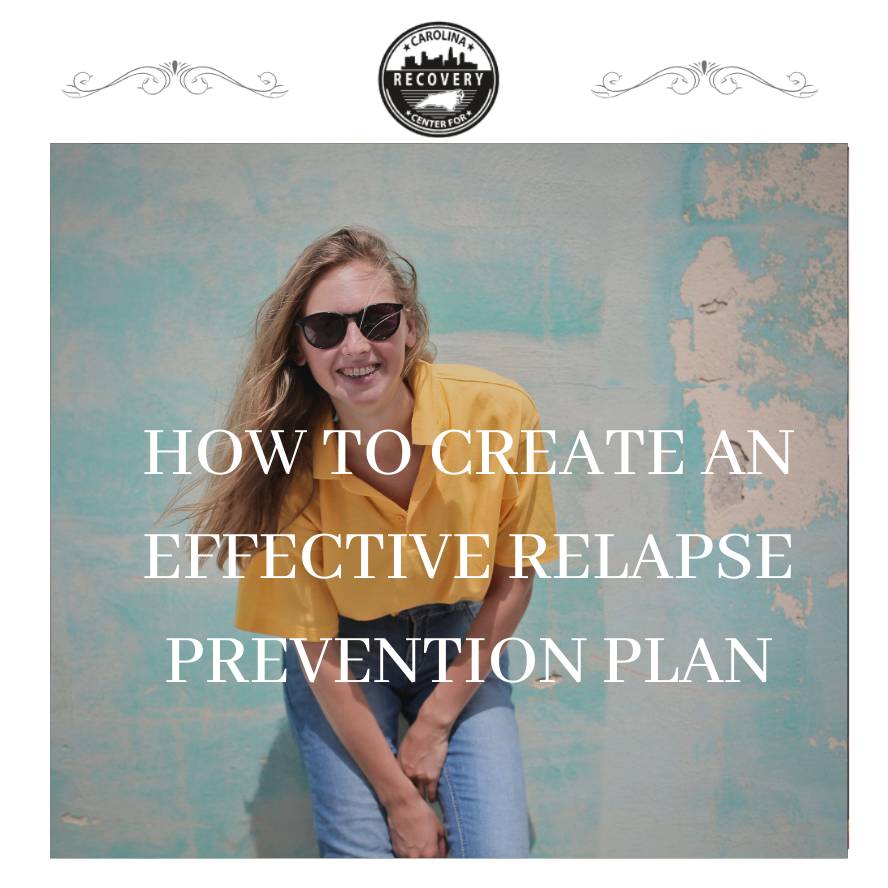How to Create an Effective Relapse Prevention Plan

Medically Verified: 2/1/24
Medical Reviewer
Chief Editor

All of the information on this page has been reviewed and verified by a certified addiction professional.
How to Create an Effective Relapse Prevention Plan
Addiction is defined as “a chronic, relapsing disorder characterized by compulsive drug seeking, continued use despite harmful consequences, and long-lasting changes in the brain.” In other words, relapse is not an uncommon component when discussing the disease of addiction. Therefore, it is crucial for a recovering individual to create a plan on how to avoid relapse and what you should do if relapse does occur.
Recovering individuals often refer to this as a relapse prevention plan. Understanding how you can avoid relapse and implementing a relapse prevention plan is proven to promote continuous sobriety. It also keeps you prepared for anything that comes your way in recovery.
What is a Relapse Prevention Plan?
A relapse prevention plan helps an individual recognize behaviors that are indicative of a future relapse. This plan also identifies and outlines the specific coping skills and actions an individual should take to get back on track. Generally, a relapse prevention plan is written down by a recovering addict with the help of medical professionals in drug rehab. The plan should include an overview of common signs of behaviors prior to relapse as well as a plan to combat triggers and cravings.
If you are familiar with recovery, then you have probably heard the phrase “relapse before the relapse.” This phrase comes from the three-part process that is typically associated with relapse. This process often includes:
- Emotional Relapse
- Mental Relapse
- Physical Relapse
Awareness is key when creating a relapse prevention plan. It is vital that you understand that relapse is not typically an out-of-nowhere event. Understanding the different components that typically fall in line with the relapse process can help you create a plan to combat feelings and events and ultimately the physical relapse.
Tips for Creating a Plan
It is suggested that you create a relapse prevention plan with someone who understands and has experience like a substance abuse therapist or a sponsor. It is also important that you write down your relapse prevention plan in order to have a more clear outline of what your plan entails. Here are a few tips on how to create a successful relapse prevention plan:
Review Your Drug and Alcohol History
Before you can accurately create an effective relapse prevention plan, it is important that you assess your history with drugs and alcohol. Here are a few questions you should ask yourself:
- Was there a specific time frame or series of events that took place when you were more prone to abuse these substances?
- Are there specific people that have been associated with the specific times you used?
- Do you have a history of relapse? If so, can you think of a person, place, or event that prompted your relapse?
- What are some common thought patterns associated with your substance use?
Determining your relationship with your drug and alcohol addiction is vital in avoiding potential triggers or patterns of behaviors that may ultimately lead to relapse.
Acknowledge Potential Signs That Could Lead to Relapse
More often than not, there are many changes in behaviors, habits, and even mood before an individual experiences relapse. In order to avoid relapse, it is important that you brainstorm a list of scenarios or warning signs of potential relapse. These signs may include:
- Change in attitude/perception
- Elevated stress
- Reactivation of denial
- Social breakdown
- Loss of structure
- Behavioral changes
- Overwhelming anxiety/depression
- Cravings
- Bargaining with yourself
- Dishonesty with sober support
- Chaotic schedule
- Isolation
Creating a list of your potential warning signs of relapse often equips an addict with more insight into your recovery. Furthermore, sharing your list with your sober support or family members provides them with the information to identify and help to prevent relapse for the recovering addict.
Create a Plan of Action Against Relapse
One of the most important steps is actually creating a plan of action to combat possible relapse. It is important that you establish healthy outlets and coping skills for potentially triggering events or situations in which you may have the desire to turn to drugs or alcohol. The more specific your prevention plan is, the more likely you are to follow the plan rather than experiencing a painful relapse.
It is suggested that you write down who you should call first. For example, you may want to call a sponsor or sober support and ask them to come with you to a meeting. The more detailed your plan is, the more likely you will avoid relapse and be held accountable to get back on track.
Relapse Prevention
Just as there are several roads to recovery, there are also multiple views on relapse prevention. For example, Terry Gorski is an internationally recognized substance abuse and mental health expert that developed a CENAPS model of relapse or a Gorski relapse prevention plan. This plan includes:
- Self Regulation – Physical, psychological, and social stabilization
- Integration – Completing a self-assessment
- Understanding – Educating yourself on relapse warning signs and prevention methods
- Self-knowledge: Identifying warning signs for when you are likely to relapse
- Coping Skills – Managing the warning signs effectively
- Change – Reviewing the recovery plan
- Awareness – This is acquired through practice and consistency
- Support – The involvement of significant others
- Maintenance – A comprehensive follow-up plan
No matter which method you decide to use when creating your relapse prevention plan, it is important that you create the plan before leaving drug rehab. Creating and implementing a relapse prevention plan can be the difference between continuous sobriety or staying trapped in the vicious cycle of addiction.

